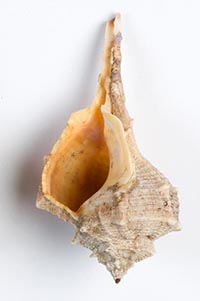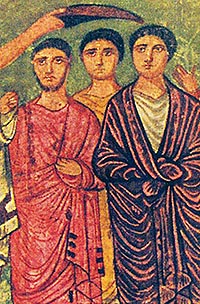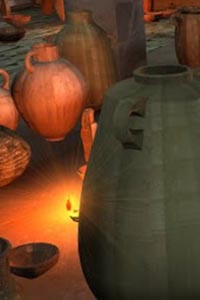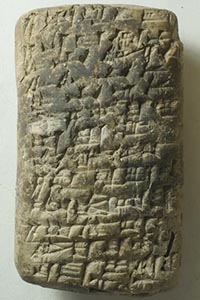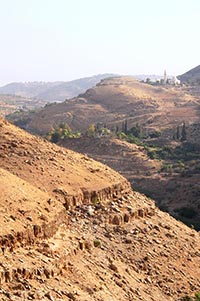

October 2019
Vol. 7, No. 10
 Counterfeiting and Fake Dyes in the Clothing Industry from the Roman Period
Counterfeiting and Fake Dyes in the Clothing Industry from the Roman Period
By Naama Sukenik
During the Roman period the color purple was restricted to elites. Not surprisingly, fakes and imitations were common. New analytical techniques help us understand these industries and their diverse source materials. Read More
 From Sinner to Model Ancestor: King David in Post-Biblical Jewish and Christian Literature and Art
From Sinner to Model Ancestor: King David in Post-Biblical Jewish and Christian Literature and Art
By Catherine Hezser
King David was a sinner, but post-Biblical Jews and Christians transformed him into a hero. These changes tell us as much about competition between the two as they do about evolving religions and theologies. Read More
 Visualizing Food Storage in Ancient Houses
Visualizing Food Storage in Ancient Houses
By Tim Frank
The expression seeing is believing has another meaning in archaeology; imagination is necessary to see what has been removed. Visualization is a powerful technique to see what is no longer there. Read More
 The Care of the Elderly in Susa: A Study in the Akkadian Documents from the Sukkalmah Period
The Care of the Elderly in Susa: A Study in the Akkadian Documents from the Sukkalmah Period
By Hossein Badamchi
A unique series of texts from the early second millennium BCE at Susa shows that care of the elderly was a serious concern for families. Then, as now, inheritance was a motivation for children to provide their parents with proper care. Read More
 From the Southern Jordan Valley Plains to the Transjordanian Plateau: Current Archaeological Fieldwork in the Wadi Shuʿaib, Jordan
From the Southern Jordan Valley Plains to the Transjordanian Plateau: Current Archaeological Fieldwork in the Wadi Shuʿaib, Jordan
By Alexander Ahrens
Some eighteen kilometers long and with a vertical rise of a kilometer, the Wadi Shuʿaib connects the Jordan Valley with the Amman area. A recent survey project has revealed sites of many ages tucked into this diverse landscape. Read More
